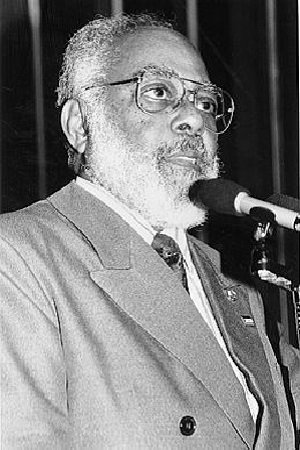

Abdias do Nascimento (March 14, 1914 – May 23, 2011) was a prominent African Brazilian scholar, writer, visual artist, politician, poet, actor, playwright, and Pan-African activist, who created the Black Experimental Theater (1944) and the Black Arts Museum (1950), organized the National Convention of Brazilian Blacks (1946), the First Congress of Brazilian Blacks (1950), and the Third Congress of Black Culture in the Americas (1982). Professor Emeritus, State University of New York at Buffalo, he was the first Afro-Brazilian member of Congress to champion black people's human and civil rights in the National Legislature, where in 1983 he presented the first Brazilian proposals for affirmative action legislation.

Between scenes from his concert in São Paulo's oft-inaccessible Theatro...

Through clippings, the film draws a narrative line between the...

The African deity that brought in Brazil Together with the...
The life of Abdias Nascimento, a prominent black activist born...